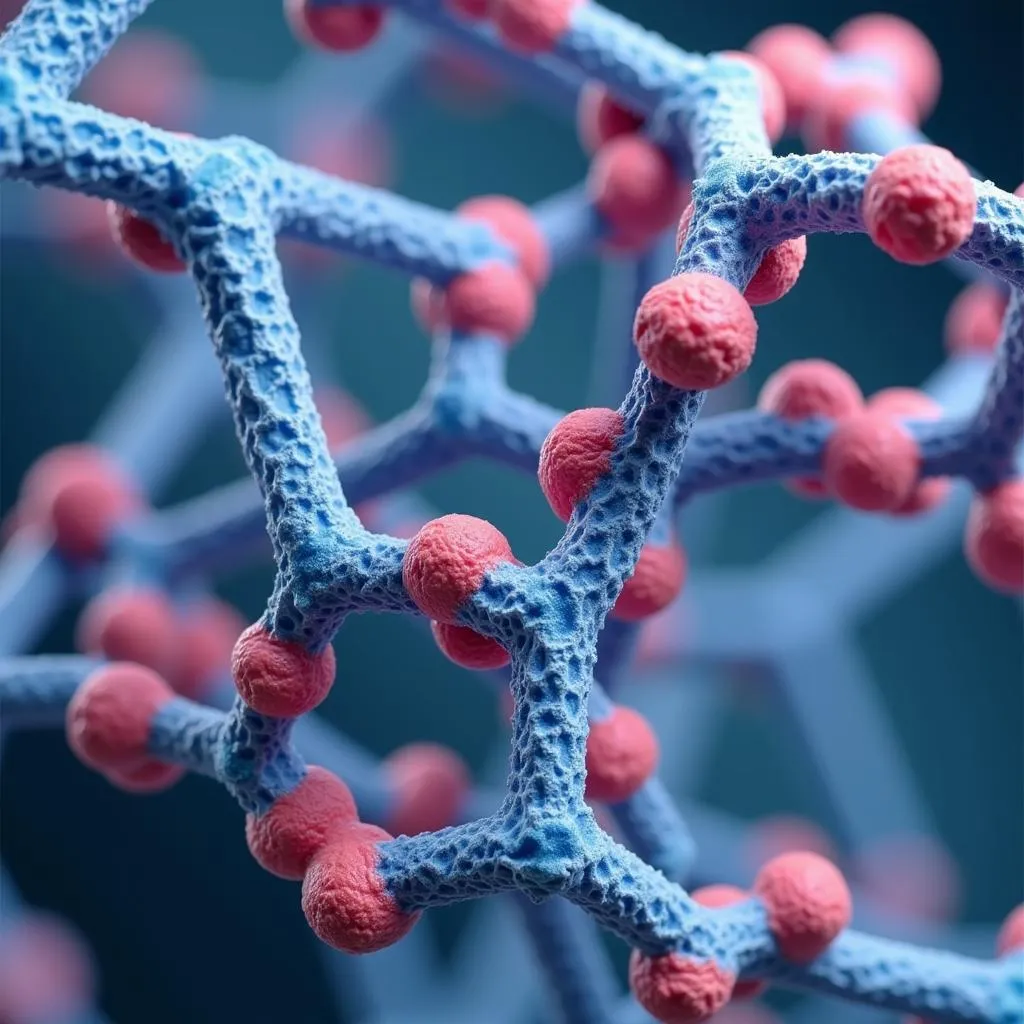“Tính chất hóa học” in Vietnamese translates to chemical properties in English. This term refers to the characteristics of a substance that can only be observed during a chemical reaction, where the substance’s identity changes.
 Chemical Properties of Collagen
Chemical Properties of Collagen
Understanding Chemical Properties
Chemical properties describe how a substance interacts with other substances or how it behaves under specific conditions. These properties are inherent to the substance’s composition and are crucial for understanding its potential uses and reactions.
For instance, flammability, toxicity, reactivity with acids, and oxidation states are all examples of chemical properties. These characteristics are not visible by simply looking at a substance; they become apparent during a chemical change.
“Tính Chất Hóa Học” in the Context of Collagen
When discussing “tính chất hóa học” of collagen, we delve into its unique characteristics that determine its behavior and interactions in various applications. Collagen’s amino acid sequence, the presence of specific bonds, and its overall structure dictate its chemical properties.
 Collagen Applications in Beauty
Collagen Applications in Beauty
For instance, collagen’s ability to form strong, flexible fibers is a chemical property crucial for its role in maintaining skin elasticity and joint health. Similarly, its susceptibility to enzymatic degradation influences its bioavailability and absorption in the body.
Understanding these chemical properties is essential for developing effective collagen-based products, ensuring their stability, and optimizing their benefits.
Importance of “Tính Chất Hóa Học” in Skincare
In the realm of skincare, “tính chất hóa học” of collagen play a vital role in determining its efficacy. The way collagen interacts with skin cells, its ability to retain moisture, and its susceptibility to degradation by environmental factors are all governed by its chemical properties.
 Collagen for Healthy and Beautiful Skin
Collagen for Healthy and Beautiful Skin
For example, collagen’s ability to bind water contributes to skin hydration, while its antioxidant properties help protect against free radical damage.
Conclusion
“Tính chất hóa học”, or chemical properties, are fundamental to understanding the behavior and potential applications of any substance, including collagen. By understanding these properties, we can harness the power of collagen effectively in various fields, particularly in skincare and beauty.
Remember, choosing high-quality collagen products and understanding their chemical properties is crucial for achieving desired results.
Frequently Asked Questions
- What is the English translation for “tính chất hóa học”?
- The English translation for “tính chất hóa học” is chemical properties.
- Can you give some examples of chemical properties?
- Some examples of chemical properties include flammability, toxicity, reactivity with acids, and oxidation states.
- Why are chemical properties important in skincare?
- Chemical properties determine how collagen interacts with skin cells, its ability to retain moisture, and its susceptibility to degradation.
- How do I choose the right collagen product for me?
- Consider factors like your skin type, concerns, and desired outcomes. Consulting a dermatologist can be beneficial.
- Where can I learn more about collagen and its benefits?
- You can find more information about collagen and its benefits on our website’s serotonin hóa chất mất trí tạm thời page.
Other Questions You Might Have
- What are the different types of collagen?
- How is collagen extracted and processed?
- Are there any side effects of using collagen?
For further assistance and to explore our range of premium collagen products, please contact us at Số Điện Thoại: 0373298888, Email: [email protected], or visit our office at 86 Cầu Giấy, Hà Nội. We have a dedicated customer support team available 24/7 to assist you.